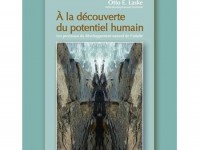This article of 2000 deepens Argyris’ notion of theory-in-use by recourse to empirical findings of the developmental sciences. It defines "consulting" based on this deeper notion. The article teaches a lesson still not learned in consulting: that theory-in-use has to do with levels of mental growth, both cognitively and social-emotionally, cutting through all "competence models". Consulting is redefined as the interactive design of interventions that take the level of mental growth of organization members and of their culture into account, equally in start-ups. Theory-in-use itself [what people actually do in organizations] is seen as comprising both a structural [social-emotional] aspect, referred to as individuals’ level of evolving self, and a procedural [cognitive] aspect, represented by individuals’ level of complexity handling. Their integration and unity demystifies "consciousness" as well as "leadership". In the process, the Developmental Structure/Process Tool (DSPT) – since 2005 referred to as CDF, Constructive Developmental Framework -- is introduced as an instrument of evidence-based consulting and coaching. CPJ #2, 2000. Read More...
Category: Developmental Coaching
An Integrated Model of Developmental Coaching
This article, originally published in 1999 but still very timely today, introduces a way of deepening cognitive-behavioral, psycho-dynamic, and other behavioral approaches to coaching and HR resources management. It proposes an epistemological model that focuses on adults' frame of reference (world view), the true determinant of human behavior, which has been practiced and taught internationally at the Interdevelopmental Institute (IDM) since 2000. The approach focuses on adults speech behavior as a dimension revealing their developmental profile both social-emotionally (with regard to meaning making) and cognitively (with regard to sense making or *thinking*). The paradigm and the model are developmental in a twofold sense, that of “ontic” development occurring in human organisms as the mature over their lifetime (“nature”), and of “agentic” development brought about by humans (“nurture”). An introduction to the model is presented, followed by the topology of the mental space of coaching, a summary, and suggested topics for future research. Source: Consulting Psychology Journal 51.3, pp. 139-159 CPJ #1, 1999 Read More...
Human Systems in the Anthropocene
This article is a reflection on the lack of systemic and holistic "dialectical" thinking in a world in which more than ever human actions have strong and immediate repercussions in the natural, and thus also the social, environment. It is suggested that present notions of teaching, coaching, and consulting are hopelessly anachronistic since they are built on theories and algorithms of a purely formal logical nature that hinder individuals' potential for dialectical thinking to emerge. Human Systems in the Anthropocene Read More...
Mentoring a Behavioral Coach to Think Developmentally
In this dialog between two coaches, one of them behavioral, the other developmental, I convey the mindset it takes to think about coaching clients in an adult-developmental manner. My goal is to demonstrate the differences in thinking and listening, not just "methodology", that separate the two approaches to coaching. From my experience, while behavioral coaching has its place at lower levels of organizational levels of responsibility, it is increasingly ineffective the higher one climbs up the organizational ladder. This does not preclude, however, that the two forms of coaching could not be fruitfully combined once the coach is expert in handling developmental tools. Keywords: Constructive Developmental Framework, dialectical thinking, handling complexity, developmental listening, social-emotional coaching, cognitive coaching. 2007_Laske_Otto_Mentoring_a_Beh._Coach(1) Read More...
